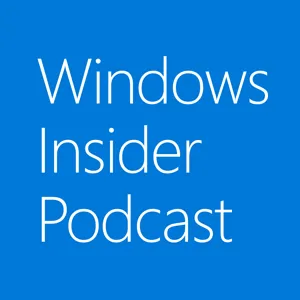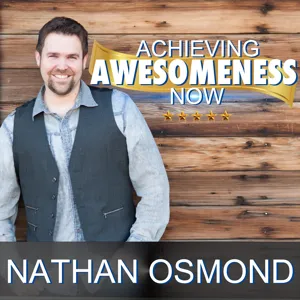In this episode, we learn more about the brilliant host of the fantastic Spanish learning podcast named Español con Juan.

Head over to https://www.myfluentpodcast.com/?p=1131 to read the full transcript of the interview!
https://1001reasonstolearnspanish.com/spanish-shy/
Juan has a YouTube channel as well: https://www.youtube.com/channel/UCoHJ7PkM6T92LwgJgrnDhWA

1. Part of the Interview's transcript:
Hello.
I'm fine. Thank you very much. It's so nice having you here on my fluent podcast.
It's an honor. It's an honor. Thank you. Thank you for your invitation!
My name is Juan , I'm a Spanish. I am from a small city in the South of Spain called Granada.
I started to learn English when I was about 19 or 20, more or less or very late when I was about 29 or something like that, that I decided to come to England to London to prove my English because , as in your situation, I didn't have anybody to talk to. I was reading on, um, watching movies? So I decided one summer, OK I went to the UK to London for three months. I was sure that in three months my English would be very, very good. I will become fluent bilingual and every time I have many, many high expactations, um, and then I came here and after three months I realized it wasn't enough. So I decided to stay for another three months and then another three months like that, you know, because I was never happy with my English. So, um, eventually I found here friends, I made friends, I found a job, so I stayed here and I've been here for 23 years now. My English is still not good enough. So I have, uh, I have to stay there.
And you were a Professor at the university is that right?
I studied psychology in Spain. , when I came here, , I wanted to work as a psychologist maybe, but my English wasn't good enough to do that. So, I decided to become a language teacher. I could teach, I could teach French and Spanish in the schools and then I did different things always related to languages until I found a job at the university at university college, London, which is a very good place, very prestigious university.
And I've been teaching there for maybe 15 years. Until last year, last year, I quit my job and now I'm working full time on the internet. I have a podcast and a youtube channel. It has been a long trip. Yeah.
So when did you start exactly with your podcast?
I think I started like seriously in 2017 I have been doing other things before similar, but it wasn't really a podcast because, um, I mean, , I'm not, very young now, so, uh, I didn't know how podcasts or Youtube work. I have. I have to learn how to use them. I had to learn how, you know, how to use them forlanguages to teach languages. So at the beginning I was doing like, it wasn't a podcast it was more like audio activities. You know, I was working out in university, so I wanted to create a listening practice for my students. So I created some short dialogues , or I interviewed some of my colleagues, taught university in Spanish. I was creating, like listening activities for my students basically for a couple of years. Then in 2017, I did a little bit of research and I discovered that I could do other things. Uh, So I started with the podcast yes. Three years ago. Yeah.
So was there anybody or anything that inspired you. To do the podcast or was there any idols or Do you like listening to other podcasts? Maybe Yeah
Well, I remember that he was listening to this podcast maybe, you know, a coffee break, coffee break, English, Spanish coffee break, French. They have different languages. You know it?
Yes. I know. I know it. I have listened to it, but it has been quite a while.
Yeah. I don't, I don't listen to it anymore, but I remember that, I liked the, you know, the, the boys of the, of the guy who was doing it and, uh, he was, I liked the atmosphere, you know , they, they create, , yeah. in the podcast Because I thought I could do something similar.
I didn't like the fact that it was everything in English, because for example, when they are teaching in French or German, they speak in English most of the time. So because. I didn't like that. I liked the atmosphere. The guy is it comes across very nice, you know, very closely. Um, I was trying to learn German for a while.
I was, I was listening to them until I realized that most of the time was , They were talking in English. I understand why they do. I understand why they do it, but no, they didn't work for me.
And speaking about atmosphere, I must say when I came across your podcast for the very first time. I was so impressed because yeah.
I remember, I think you were washing your, you, you were, , doing the , the washing machine, I think. And you were doing, small tasks, daily tasks, and to me it was like a friend was talking to me and talking about life. And that was so amazing because it was absolutely not the typical language podcast.
You know, without a lot of grammar, no, like a conversation, not a conversation, but like a friend talking to me. And that's the reason why I really, I love your podcast the way you communicate and also your emotions when you are speaking. Sometimes very loud or so it's just amazing because I can feel the energy. I can feel the passion behind all this and yeah.
Thank you yeah. Yeah. I am this many people, many people tell me something similar it's actually what I have been trying to do because when I started even nice, I'll tell you what a little bit. I knew that I didn't want to go the the traditional grammar podcast explaining grammar points or vocabulary.
No, I felt that podcasts could have a lot of potential and it could be used in many different ways, but I don't know, I don't, I'm not a specialist, but, Little by little, I've been discovering different things that you can use, like storytelling telling stories or different things that you can use with a podcast.
And lately in the last year, I've been doing this kind of thing. Yeah. Just walking down the street, for example, commenting something that I see or something that happened to me, or maybe like you, the one you mentioned in my house washing the dishes or, you know Mmm. Putting my clothes on the same time, talking Yeah.
The idea ist like talking to somebody as if you were here with me. Yeah. Something very natural or very spontaneous. And that's what I've been doing lately. I don't know if It does work
I guess, so, it works quite well. yeah, it's great. And I'm wondering if, if these episodes are always spontaneous or, or do you also have like a script or some points you want to talk about how do you go about, it or how do you get the topic in general?
Yeah. Well, it's a mix of , situations. Sometimes it's very spontaneous, very, very natural. Well I have in mind before something I want to say I want to talk about something. Yeah. Like a topic, but in the middle of another task, you know, maybe doing the dishes or, um, you know, I I'm, I'm walking down the street and I'm making some comments a very natural way at the same time that I talk about something that is worrying me.
That day or something I have in mind. But the result is very, very natural. Yeah. Other times I have a script, I write it because it depends sometimes I want to make sure that I mentioned a few things. I want to use a particular vocabulary.
Yeah. And you provide the transcription as well for the listeners, which is a great way to learn
and yeah. And very time consuming because when you are talking, you know, like that, , off your mind, anything that's come up, yeah. In your mind.
So you transcribed for yourself the whole thing.
Yeah, yeah.
Yeah I use, a software that makes most of it automatically, but , there are a lot of mistakes I have to go through it to correct, you know, to polish it up a little bit to correct mistakes. Yeah. that that's the most boring part. Okay. Yeah. To write the transcription.
Has podcasting changed your life?
Somehow, yes, , yeah, definitely because what I was teaching at university you know, I had to use the methodology. Yeah. The kind of teaching that they asked me to do.
I was a one Spanish teacher like the rest ,but here with the podcast, I do what I want, I discover what works, what doesn't work, what people like, what I can do best for me. So that's very important because you know yourself a little bit people tell me, for example, I like what you do.
It's very nice you have a lot of sense of humor and I like your approach. So my self esteem is very high now, compared to before, because I, when I was teaching Spanish, Yeah, nobody says to me all the time. Oh, I love you teacher no, Sometime some students congratulate you thank you yeah. But it's not that common and here online.
Everybody is telling me, Oh, you are a fantastic teacher. I know I'm a fantastic teacher, but people keep telling me that. So. Eventually it becomes something that you, you get used to my brain. I don't know, I like this kind of thing.
What do you like more being a professor or being a podcaster?
Uh, I just see mysel y anything like that or professional or a podcaster or not.
um, I am Juan, you know, I do different things. And, at the moment I'm doing the podcast and I, I suppose, for you it's the same, you discovered yourself, you know, you, you, you were not aware that you could do now. For example, I discovered that I can make jokes and people laugh at my jokes and I can kind of integrate humor in my videos and my podcast.
I didn't know that before, you know, I, I do. You're telling me that you like this kind of a natural podcast, you know, I do the washing machines and all that before, so it's something that's it's it feels good. It feels good
right now. so it comes to mind, which you did, it was called something like where, when sir, and you were talking about yourself , and you consider yourself as a rather shy person.
And I think you mentioned also that you didn't like to, to speak in public. I think , at any rate it was, yeah, it was great because not only in that episode, but in general, you talk very openly. I think so we can, have like an insight of your life or your person. And I think that's also the reason why your podcast is so great.
And yeah, it makes you human, you know? It's yeah. It's like you said before, it, you are, you are, you're not a podcaster. You're Quan. That's me. Yeah, yeah, yeah.
For the second part of the interview, go to www.myfluentpodcast.com

(Cover Picture from one of Juan's latest YouTube video):
https://www.youtube.com/watch?v=V8PVGlTicvU




























